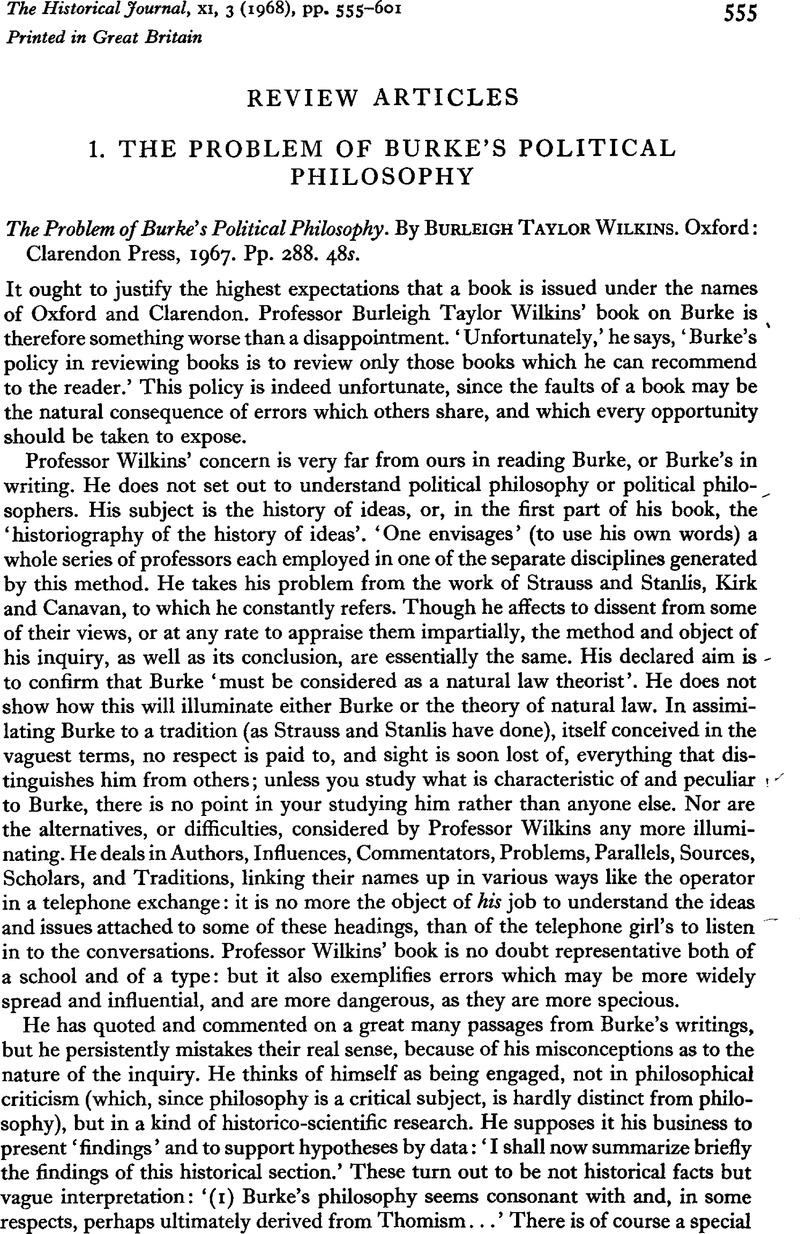Published online by Cambridge University Press: 11 February 2009

1 But see ‘On Edmund Burke's Doctrine of Prescription; or, An Appeal from the New to the Old Lawyers’ by Lucas, Paul, The Historical Journal, XI, 1 (1968), 35–63.CrossRefGoogle Scholar
2 Professor Wilkins has been reading Descartes.
3 Nor, perhaps, ordinary old chairs, but what about the Coronation Chair?
4 ‘RULE: 1. Government; empire; sway; supreme command. 2. an instrument by which lines are drawn. 3. Canon; precept by which the thoughts or actions are directed. 4. Regularity; propriety of behaviour (not in use). PRINCIPLE: 1. element; constituent part; primordial substance. 2. original cause. 3. Being productive of other being; operative cause. 4. Fundamental truth; original postulate; first position from which others are deduced. 5. Ground of action; motive. 6. Tenet on which morality is founded.’ Johnson, Dictionary.
5 Perhaps that is why, elsewhere in a footnote, he suggests as a supreme moral principle: Do good and avoid evil.